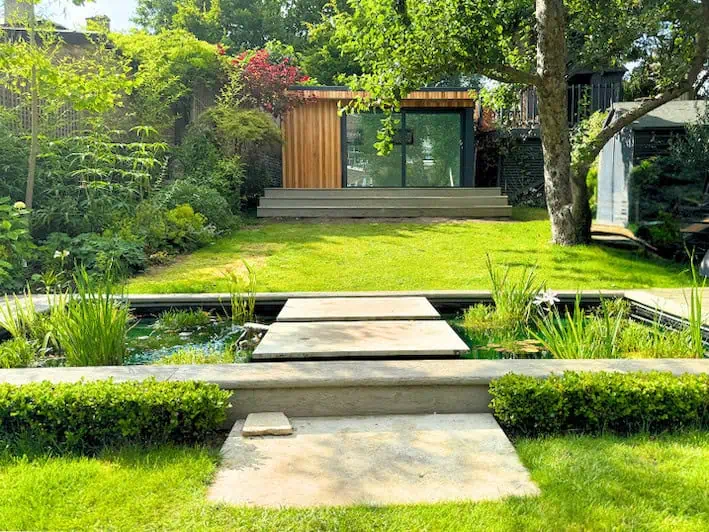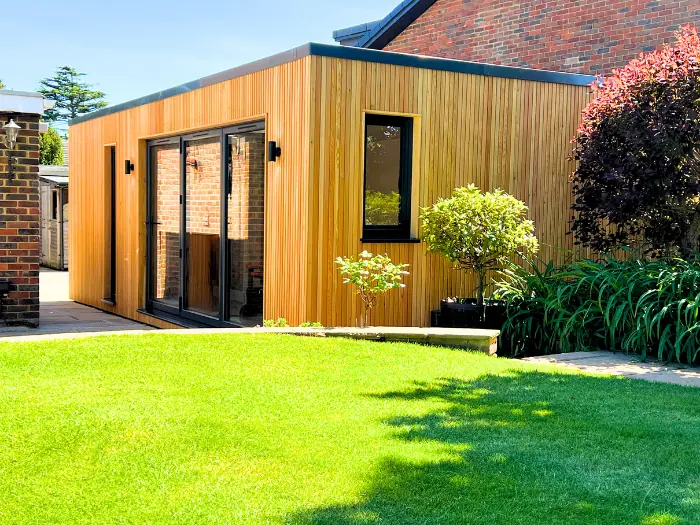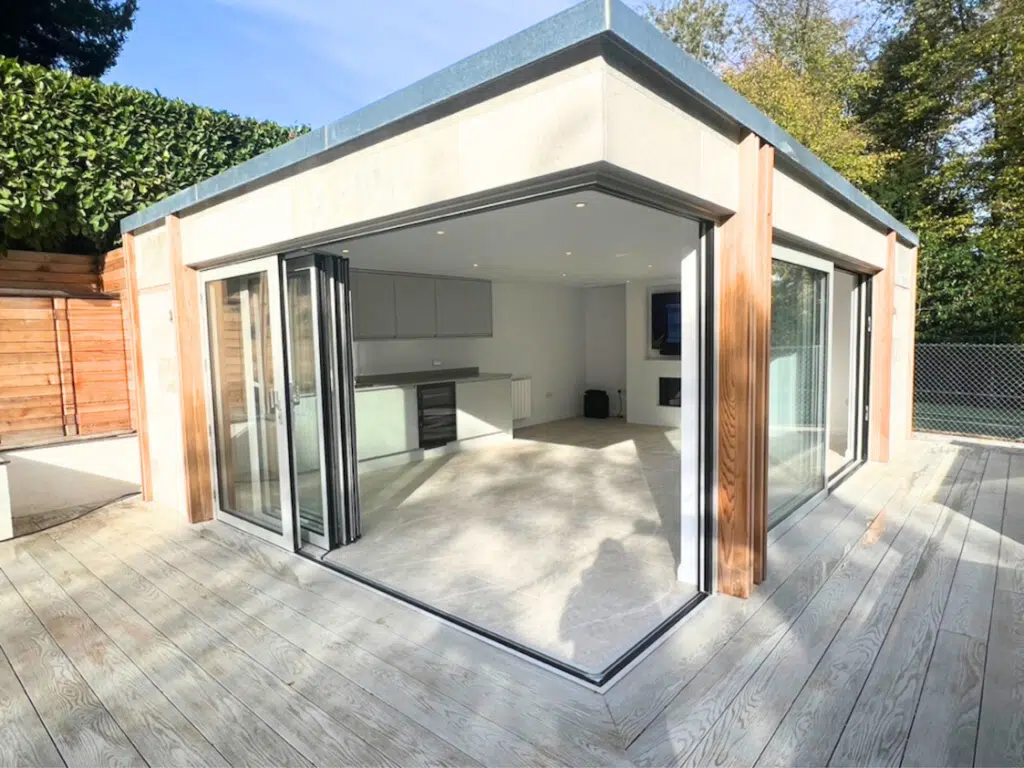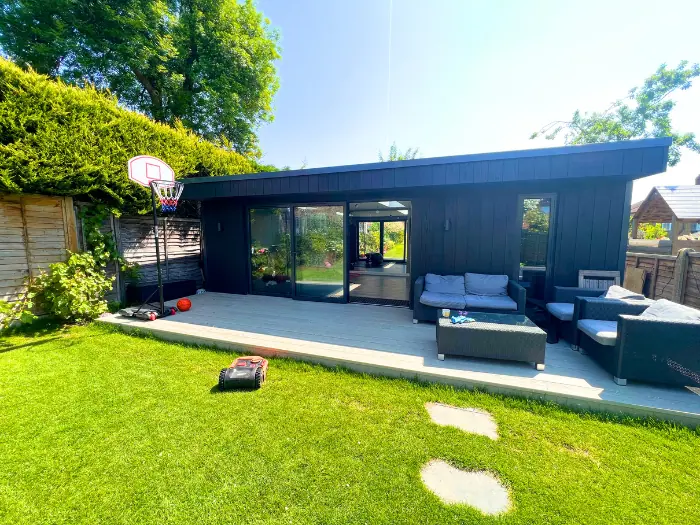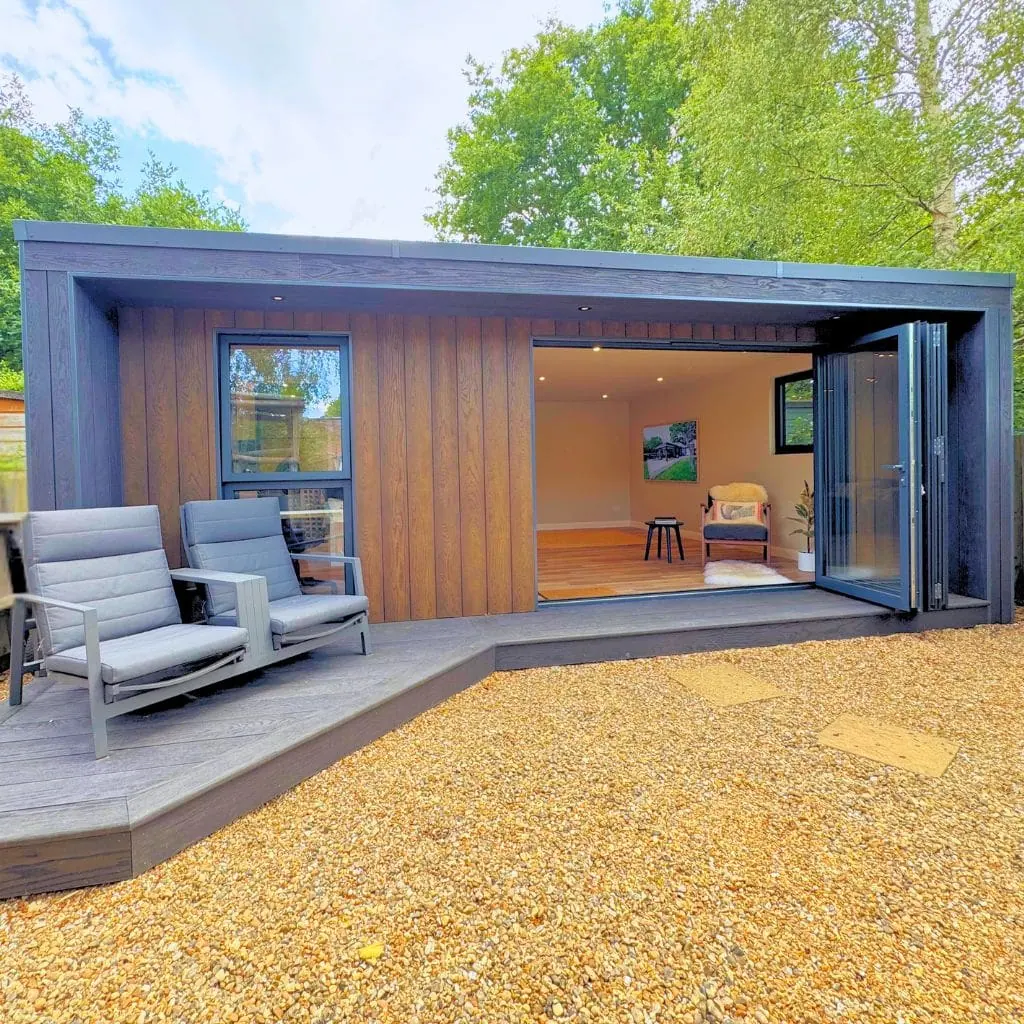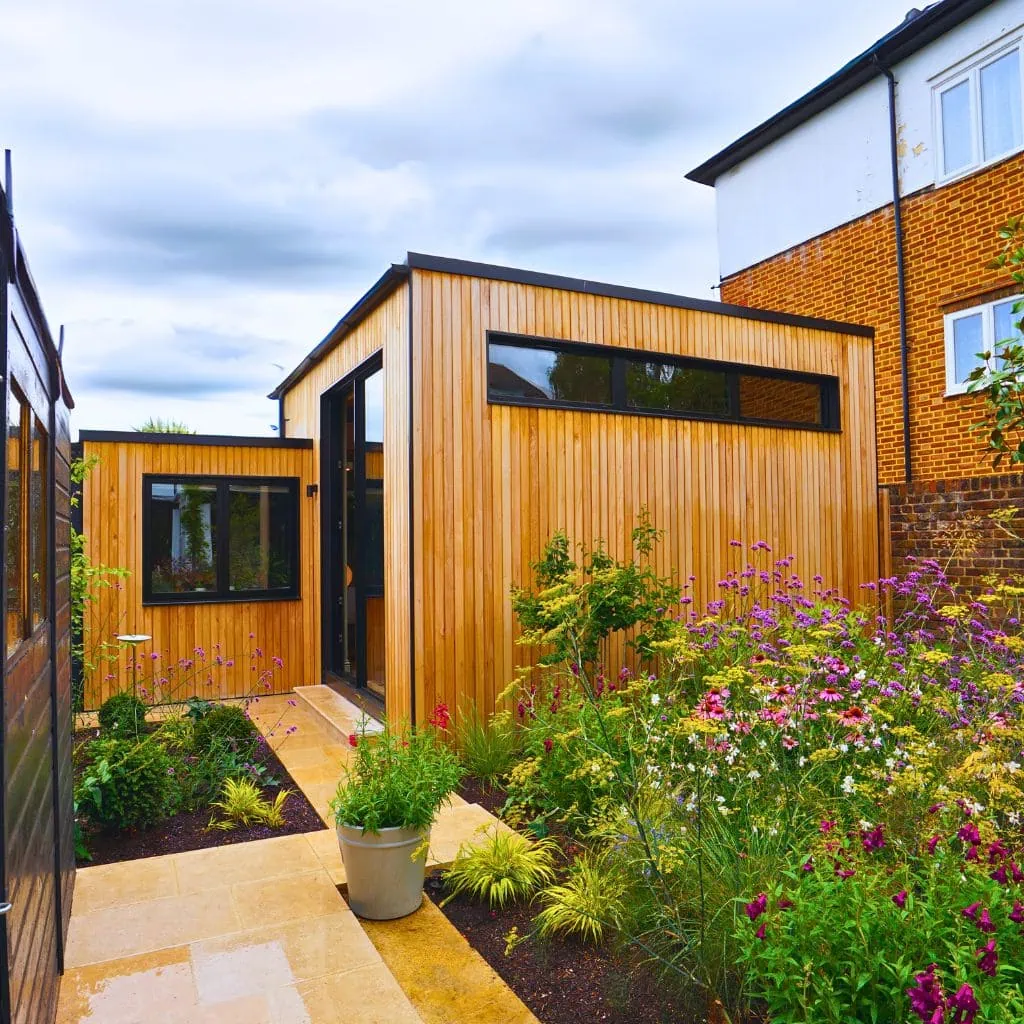Regulations on Sleeping in Your Garden Room
Can you sleep in your garden room?
In the UK, the regulations surrounding sleeping accommodation in a garden room depend on factors such as its intended use, the room’s construction, and whether it will serve as an occasional guest space or a more permanent residence. Here’s a detailed overview of the key regulations:


Do i Need Planning Permission to sleep in my Garden Room?
Planning
In many cases, garden rooms fall under Permitted Development Rights, meaning you don’t typically need planning permission as long as certain conditions are met. However, when the garden room is used for sleeping accommodation, the rules are stricter:
Permitted Development Criteria
- The building must be single-storey with a maximum height of 2.5m if within 2m of a boundary.
- The garden room should not cover more than 50% of the total land around the house.
- It should not be located in front of the principal elevation of your house.
- In protected areas (like National Parks, Areas of Outstanding Natural Beauty, or Conservation Areas), certain restrictions are more stringent.
Using as Sleeping Accommodation:
While a garden room used as an office or gym may not need planning permission, if it is used for overnight stays, the local council may consider it a material change of use, requiring planning permission.
Permanent Living Space: If the garden room is intended to be used as a self-contained living accommodation (e.g., with a bathroom or kitchen), it will almost certainly require planning permission as it would be classified as a new dwelling.
Permanent vs Temporary sleeping use
Occasionally using a garden room as sleeping accommodation for guests or as a temporary retreat may not require additional permissions, but permanent or frequent use might. If the garden room is to be used as a guesthouse or a holiday let, different regulations could apply, and planning permission may be required.
What is building control regulations for sleeping in a garden room?
Building Control
If you are planning to use a garden room for sleeping accommodation, it may be subject to Building Regulations. These regulations ensure that the structure is safe, well-constructed, and suitable for human habitation. Key areas to consider include:
Insulation and Energy Efficiency: The garden room must meet energy efficiency standards for insulation, ventilation, and heat loss. Walls, floors, and roofs may need to meet specific thermal insulation requirements.
Structural Integrity: Building regulations ensure that the structure is stable and can support its intended use. This includes foundations, roofing, and overall construction.
Electrical Safety: If the garden room has electricity (which is typically necessary for sleeping accommodation), it must meet Part P of the Building Regulations (in the UK) for electrical safety. This means that all electrical installations should be carried out by a qualified electrician.
Fire Safety: For sleeping accommodation, fire safety regulations apply. This could include:
- Fire-resistant materials in construction
- Smoke alarms and fire exits
- Adequate means of escape in case of fire
Ventilation and Drainage: Proper ventilation is required to prevent dampness and condensation. If you’re including a bathroom or kitchen, appropriate drainage systems will also need to be installed to comply with building regulations.
Heating: Any heating systems installed in the garden room must be safe and meet regulatory standards. This could include electric heaters or radiators, underfloor heating, or other types of safe, regulated heating options.


Can i use my garden room as separate accommodation or Air bnb?
Separate Dwelling
If you intend to rent out your garden room as a separate accommodation, or allow someone to live there independently, the rules are stricter:
Planning Permission is almost always required for a garden room to be used as an independent dwelling.
Council Tax: In many cases, the garden room could be subject to separate council tax, as it is classified as a separate property.
Fire Regulations and Access: It must meet more comprehensive fire safety regulations, have a separate access route, and comply with higher standards for living accommodations.


Can i Install a toilet or shower room in my garden room?
Yes you can
If the garden room will be used for incidental purposes and the addition of a toilet or shower is simply for convenience (e.g., a home gym or studio with a WC), planning permission should not be required, provided the room still functions as an ancillary structure to the main house.
In-House Planning Experts
At InFrame we have a team of in-house planning exerts. They can take a look at your circumstances and provide advice.
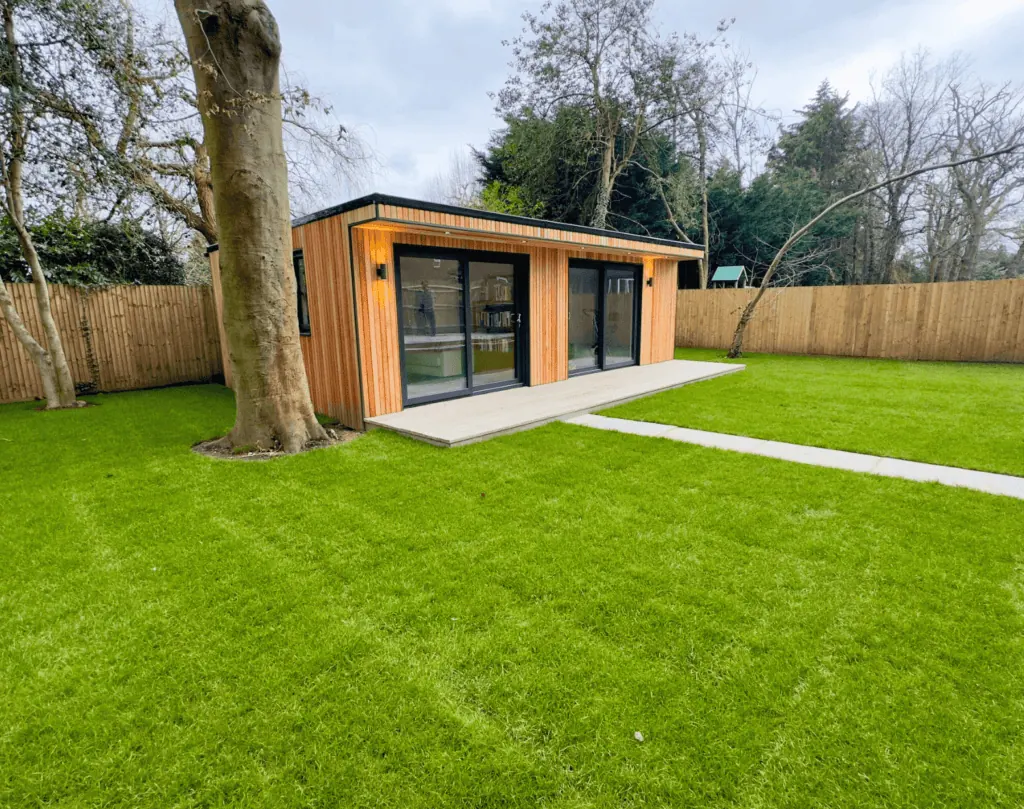
How to i apply for planning permission for my garden room?
We offer an in-house planning service for garden rooms. We will complete the application and detailed drawings on your behalf and submit the application to your council.
You can absolutely sleep in an InFrame garden room. All our spaces are well-insulated and equipped with proper heating.
Just be sure to check local regulations, consider security, and tailor the space to your needs for the ultimate garden room getaway.
